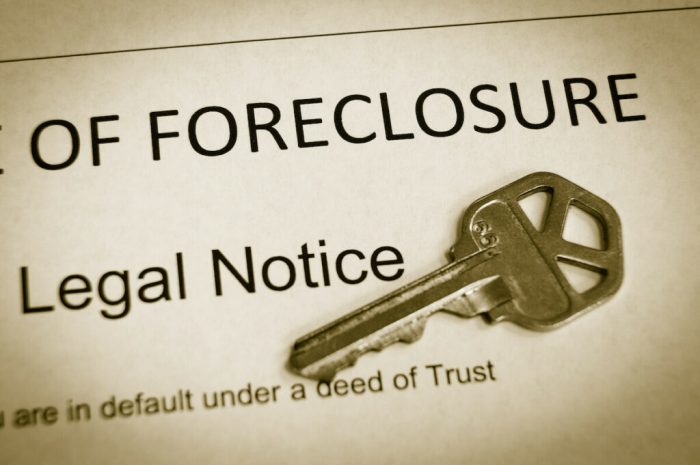Foreclosure laws for timeshares present a complex legal landscape that can be daunting for owners facing financial distress. Understanding these laws is crucial to protect your rights and explore alternative options. Let’s delve into the intricacies of timeshare foreclosures, examining state and federal regulations, the foreclosure process, and potential defenses.
State laws vary significantly, impacting the foreclosure process. Some states have strict laws, while others are more lenient. Federal laws, including RESPA and Dodd-Frank, also play a role in regulating timeshare foreclosures.
State Laws and Regulations
Foreclosure laws for timeshares vary significantly from state to state. Some states have strict foreclosure laws that make it difficult for lenders to foreclose on timeshares, while other states have more lenient laws that make it easier for lenders to foreclose.
Foreclosure laws for timeshares can be complex and overwhelming. If you’re facing foreclosure, it’s crucial to seek professional guidance. Explore Foreclosure assistance programs that may provide legal aid, counseling, and financial support. These programs can help you navigate the legal process and explore options to prevent foreclosure on your timeshare.
The impact of state laws on the foreclosure process for timeshares can be significant. In states with strict foreclosure laws, lenders may be required to go through a lengthy and expensive process to foreclose on a timeshare. This can make it difficult for lenders to recover their losses in the event of a default.
Strict Foreclosure Laws
States with strict foreclosure laws include California, Florida, and New York. In these states, lenders must typically go through a judicial foreclosure process, which can take several months or even years to complete. Lenders must also provide the borrower with extensive notice of the foreclosure proceedings and give the borrower an opportunity to cure the default.
Lenient Foreclosure Laws
States with more lenient foreclosure laws include Nevada, Arizona, and Texas. In these states, lenders can typically foreclose on a timeshare through a non-judicial foreclosure process, which is much faster and less expensive than a judicial foreclosure process. Lenders are not required to provide the borrower with as much notice of the foreclosure proceedings and do not have to give the borrower an opportunity to cure the default.
Federal Laws and Regulations
Federal laws play a significant role in regulating timeshare foreclosures, ensuring fairness and protection for both lenders and consumers.
Real Estate Settlement Procedures Act (RESPA)
RESPA establishes important disclosure requirements and consumer protections related to real estate transactions, including timeshare purchases. In the context of timeshare foreclosures, RESPA mandates that lenders provide borrowers with clear and timely notice of default and foreclosure proceedings.
Dodd-Frank Wall Street Reform and Consumer Protection Act
The Dodd-Frank Act, enacted in response to the 2008 financial crisis, includes provisions aimed at preventing predatory lending practices and protecting consumers in financial transactions. In the realm of timeshare foreclosures, the Dodd-Frank Act imposes additional requirements on lenders, such as mandatory mediation before foreclosure proceedings can commence.
Foreclosure laws for timeshares can be complex, but understanding the basics can help you protect your investment. If you’re facing foreclosure on a timeshare, it’s important to know your rights and options. You may be able to avoid foreclosure by working with your lender or by selling your timeshare.
If you’re considering buying a timeshare, be sure to do your research and understand the foreclosure laws that apply in your state. Foreclosure laws for vacant properties can also be complex, so it’s important to be aware of them if you’re considering buying or selling a vacant property.
Foreclosure Process
Foreclosure is a legal process that allows a lender to seize and sell a property to satisfy an unpaid debt. In the case of timeshares, the lender is typically a resort developer or a homeowners association (HOA).
The foreclosure process for timeshares is similar to the foreclosure process for other types of real estate. However, there are some important differences. For example, timeshares are often subject to a right of first refusal, which gives the HOA the right to purchase the timeshare before it is sold to a third party.
Initiating a Foreclosure
The foreclosure process typically begins when the borrower defaults on their loan. A default occurs when the borrower fails to make a payment or otherwise violates the terms of their loan agreement.
Once a default has occurred, the lender will typically send the borrower a notice of default. This notice will state the amount of the default and the date by which the borrower must cure the default.
If you’re facing foreclosure on your timeshare, you may have similar rights as homeowners facing foreclosure. Foreclosure rights for homeowners can include the right to a fair hearing, the right to receive notice of the foreclosure sale, and the right to redeem your property after the sale.
Knowing your rights can help you protect your interests during the foreclosure process for your timeshare.
If the borrower does not cure the default within the specified time period, the lender may proceed with foreclosure.
Foreclosure laws for timeshares can be a bit tricky, so it’s important to do your research before you buy one. If you’re thinking about buying a timeshare in my state, you should definitely check out Foreclosure laws in my state . This website has a lot of great information about the foreclosure process, and it can help you avoid any potential problems down the road.
Once you’ve done your research, you can feel confident about buying a timeshare and enjoying all the benefits it has to offer.
Foreclosure Sale
The foreclosure sale is the final step in the foreclosure process. At the foreclosure sale, the timeshare will be sold to the highest bidder.
Foreclosure laws for timeshares can be tricky to navigate. If you’re facing foreclosure, it’s important to understand what happens during the process. Here’s a helpful guide that outlines the steps involved in foreclosure. By knowing what to expect, you can be better prepared to protect your rights and explore options to save your timeshare.
The proceeds from the foreclosure sale will be used to pay off the outstanding loan balance and any other costs associated with the foreclosure.
Timeline
The foreclosure process can take several months or even years to complete. The timeline will vary depending on the jurisdiction and the specific circumstances of the case.
Defenses to Foreclosure

Timeshare owners facing foreclosure can raise various defenses to protect their interests. These defenses can challenge the validity of the foreclosure process, the underlying debt, or the lender’s right to foreclose.
Defenses to foreclosure are based on legal principles and can vary depending on the specific circumstances of each case. Some common defenses include:
Statute of Limitations, Foreclosure laws for timeshares
- Foreclosure actions must be initiated within a specific time frame, known as the statute of limitations. If the lender fails to file a foreclosure lawsuit within this time frame, the owner may be able to dismiss the case.
Lack of Standing
- The lender must have the legal right to foreclose on the timeshare. If the lender does not have standing, the foreclosure action may be dismissed.
Improper Notice
- The lender must provide proper notice to the owner before initiating foreclosure proceedings. Failure to provide adequate notice can invalidate the foreclosure.
Unfair or Deceptive Practices
- If the lender engaged in unfair or deceptive practices in connection with the loan or foreclosure process, the owner may have a defense.
Successful Defenses in Timeshare Foreclosure Cases
There have been several successful defenses raised in timeshare foreclosure cases. For example, in one case, the owner successfully argued that the lender had failed to provide proper notice of the foreclosure sale. In another case, the owner was able to dismiss the foreclosure action because the lender lacked standing.
Alternatives to Foreclosure: Foreclosure Laws For Timeshares
Facing financial hardship as a timeshare owner can be stressful. Fortunately, there are alternatives to foreclosure that can help you avoid losing your timeshare.
Loan modifications and short sales are two common alternatives to foreclosure. Loan modifications involve negotiating with your lender to change the terms of your loan, such as reducing the interest rate or extending the repayment period. Short sales allow you to sell your timeshare for less than what you owe on your mortgage, with the lender’s approval.
Understanding foreclosure laws for timeshares is crucial to protect your interests. These laws can vary depending on the jurisdiction, so it’s essential to consult a legal professional. Similarly, laws for condominiums are equally important to consider when dealing with shared ownership of property.
Whether it’s a timeshare or a condominium, knowing your rights and responsibilities under foreclosure laws is paramount to avoid potential legal complications.
Loan Modifications
Loan modifications can be a good option if you can afford to make reduced payments but cannot afford your current mortgage payments. The benefits of loan modifications include:
- Lower monthly payments
- Reduced interest rate
- Extended repayment period
However, loan modifications also have some drawbacks:
- Can damage your credit score
- May not be available for all types of loans
- Can be time-consuming and complex
Short Sales
Short sales can be a good option if you cannot afford to make your mortgage payments and cannot get a loan modification. The benefits of short sales include:
- Avoids foreclosure
- Protects your credit score more than foreclosure
- Can be completed relatively quickly
However, short sales also have some drawbacks:
- You may not get enough money from the sale to pay off your mortgage
- Can be stressful and time-consuming
- May require you to pay closing costs
If you are facing foreclosure, it is important to explore all of your options. Loan modifications and short sales can be good alternatives to foreclosure, but they may not be right for everyone. You should speak with a qualified professional to discuss your options and make the best decision for your situation.
Impact of Foreclosure on Timeshare Owners
Foreclosure on a timeshare can have severe financial and personal consequences for owners. It can damage their credit scores, making it difficult to obtain loans or other forms of credit in the future. Foreclosure can also lead to the loss of the timeshare property, which can be a significant financial setback.
Emotional Toll
In addition to the financial consequences, foreclosure can also take a significant emotional toll on timeshare owners. They may feel shame, guilt, and embarrassment about losing their property. They may also experience anxiety and depression as they struggle to cope with the financial and emotional fallout of foreclosure.
Final Summary
Timeshare foreclosures can have severe consequences, including financial ruin, damage to credit scores, and emotional distress. However, there are alternatives to foreclosure, such as loan modifications and short sales. By understanding your rights and exploring all options, you can navigate the foreclosure process effectively.
Essential FAQs
What are common defenses to timeshare foreclosures?
Timeshare owners may raise defenses such as improper notice, statute of limitations, and lack of standing.
What are alternatives to foreclosure for timeshare owners?
Alternatives include loan modifications, short sales, and deed-in-lieu of foreclosure.



